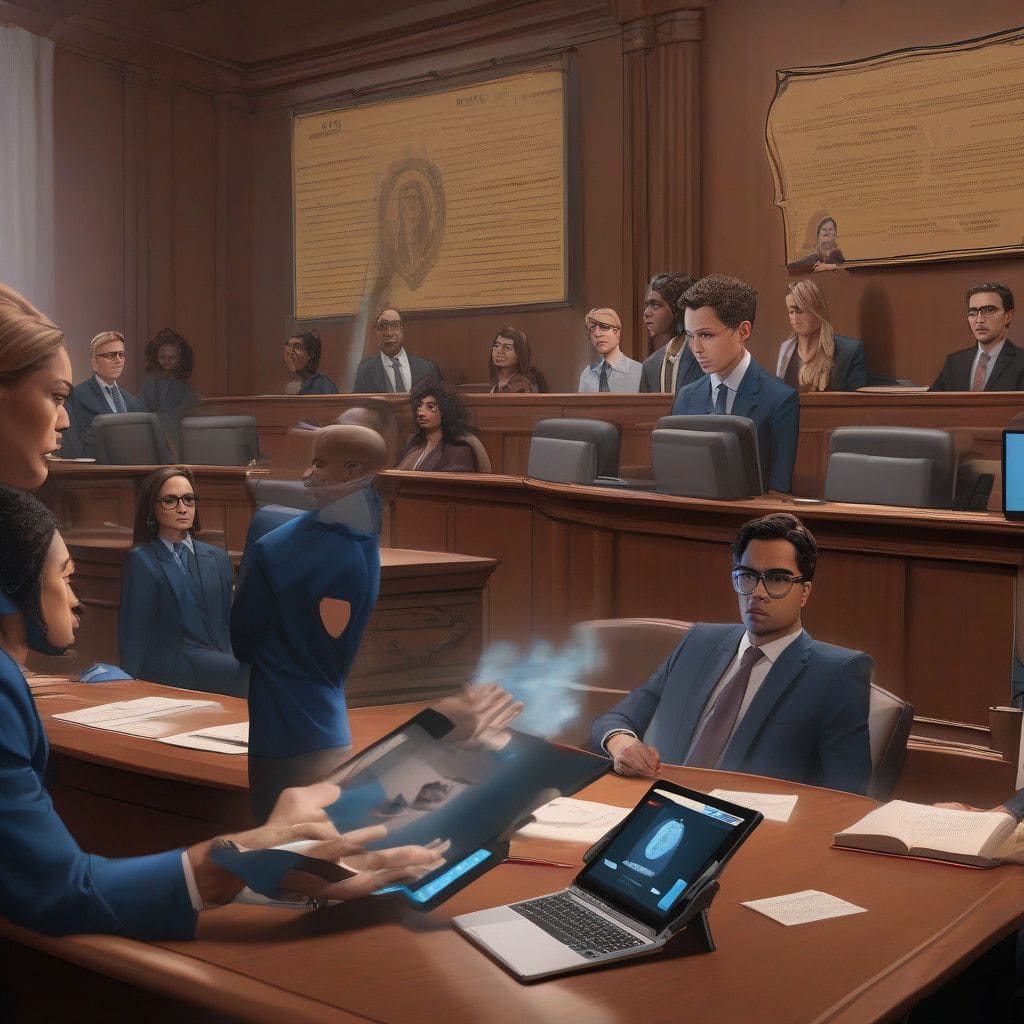California recently implemented three new laws designed to combat the surge of AI-generated deepfakes, especially in the context of political advertisements ahead of the 2024 elections. Signed by Governor Gavin Newsom, these laws aim to curb misinformation by requiring platforms to remove false content while granting individuals the right to sue for damages related to election-specific deepfakes. However, two of these laws are facing a legal challenge that raises significant First Amendment issues.
Understanding the New Legislation
The intent behind California’s legislation is straightforward: protect the democratic process. One law obliges online platforms, including popular social media sites, to swiftly eliminate false information related to electoral processes. Another provision allows individuals to take legal action against those responsible for misleading deepfakes that could potentially influence voting behaviors.
The legislation comes at a critical moment. As technology advances, AI-generated content has become increasingly realistic and harder to differentiate from genuine material. This creates a landscape fraught with risk, particularly for uninformed voters who may be exposed to misleading videos that could shape their perceptions and decisions in the electoral process.
The Legal Challenge
Recently, a creator known for producing parody videos that feature Vice President Kamala Harris filed a lawsuit against the state. The lawsuit claims that the legislation infringes on his rights to free speech by imposing restrictive measures on creative expression, such as satire and parody. The plaintiff argues that the law constitutes a form of censorship, despite state assurances that the legislation is not intended to target parody content.
This legal confrontational highlights the ongoing tension between the need to regulate harmful misinformation and the necessity of safeguarding free expression rights under the U.S. Constitution. Critics, including advocacy groups for free speech, express concerns that the laws may be too expansive, leading to inadvertent censorship of legitimate commentary and creative works.
Support and Criticism
Supporters of the deepfake regulations argue that the laws are crucial for maintaining trust in the electoral process. They underscore that as AI-generated disinformation becomes more prevalent, clear guidelines and strong measures are essential to prevent manipulation of voters and protect the integrity of elections. Legislative proponents believe that by imposing legal repercussions on offenders, they can foster responsible content dissemination on digital platforms.
Conversely, detractors argue that the regulations may prove ineffective due to the slow nature of the legal system, making it difficult to address real-time incidents of misinformation. They contend that the laws could create an atmosphere of self-censorship where content creators may refrain from using satire or humor for fear of legal repercussions.
Potential Impact on Digital Platforms
Regardless of the outcome of the legal challenge, the legislation is likely to induce significant changes across digital platforms. Companies will be encouraged to implement stricter monitoring processes to identify and combat misleading content promptly. The ultimate goal is to cultivate an online environment less prone to the spread of disinformation, particularly as the elections approach.
Legislators hope that these regulations will prompt an industry-wide shift towards accountability, encouraging tech companies to enhance their capabilities in detecting deepfakes. Platforms may need to invest more in AI-driven tools or hire additional personnel to enforce compliance with the new laws, which may also evolve further as technology and societal needs change.
Conclusion
As California navigates the complexities of regulating AI-generated content and protecting free speech, the outcome of the legal challenge will likely set significant precedents for future legislation across the United States. Striking a balance between curbing harmful misinformation and preserving the freedoms of expression remains a daunting task for lawmakers. The debates surrounding these laws underscore the intricate relationship between technology, politics, and individual rights in the digital age.
In light of these issues, California’s approach to deepfakes may inspire other states to consider similar legislation, albeit with careful attention to the risks of impinging on constitutional rights. The conversation around misinformation remains crucial, as society grapples with the responsibilities that accompany advancing technologies.












